Are you a business owner concerned about your IT costs? As your business scale, you need to build financial discipline and consolidate your business systems.
In this video, I'm going to share how to consolidate your communications and customer relationships with Copper CRM. With Copper CRM, you can reach your customers with just the right app at the right time.
Head here and learn how getting started with a modern CRM can help consolidate your IT costs.
Did you find this video helpful? Let us know by dropping a comment below!
To learn more about our Cloud Support Service, or schedule an IT Systems Check, contact itGenius - the Google Workspace Experts
Transcription:
Are you a business owner concerned about the rising costs in your business, or maybe you've got a whole bunch of different tech tools, and they're just starting to spin out of control. In this video, I'm going to cover why you should be consolidating your IT costs and some ideas on how you can do that. If you don't know about us, my name is Peter Moriarty. I'm an IT consultant. And we help small and medium sized business owners with their technology strategy. And we take businesses through a growth roadmap, which is the different stages of Business and Technology strategies for each different stage. Now, on our channel, you'll find other videos in our playlist about how you can learn about the different stages of business, and some key tips for each one of those. But in this video, we're talking about once your tech tools start to get a bit out of control, how can you start to like rein in some of those costs. And as you scale as a business, what I've found for myself having grown a multimillion dollar recurring revenue business, and we now have over 50 employees across the business, and like literally 10s of 1000s of people that we support, I found that one of the most important disciplines to learn as a business owner is the discipline of finances. And what that means is actually learning the commercial ins and outs of your business and understanding how things work with everything to do with the numbers. Now, this is something that often business owners will abdicate or just kind of be afraid of managing, it's the kind of thing that because it's not a core competency, people will push that to the side and kind of leave it to the accountant. But it's something that's really important to develop as an entrepreneur, for you to grow a successful business. Now, one of my favorite books on this is a book called profit first, and I will drop a link to that down below as well if you're interested in that. And that really sets a bit of a foundation for how you should be thinking about the different way that profits and monies kind of flows through the business. Another one is called big profits. And I'll link to that one down there as well. So let's talk about ways that you can actually reduce some of the expenses in your business or keep a lid on your IT costs. My first tip is to actually do a credit card cut up. Now, that doesn't mean stop using credit cards altogether, because using a credit card can be great for points, especially if you've got large business expenses, it's a great way to rack up points and you can use them for flights or hotels or other things. But what I mean is to actually cancel and have your credit card re issued you just call up and let them know you lost it and you want to ask for a new number. And what happens is all of your it subscriptions will stop working right? And you'll get emails and you know, you start getting a letter from zoom saying, Hey, can you please put a new credit card into your account. And what that does is it forces you to actually investigate every one of your tools that you're paying for right now. And so if you haven't used something in the last six months, and you're unlikely to use it in the next 30 days, probably good time to review and switch that one off. And you're going to progressively do that for each one of the tools that you have. Now cutting up the credit card is a nice reminder, because it's going to prompt you to check in on each one of those. Now, my number two tip is to reduce the number of users that you have in your accounts, what we found is quite often we'll have people start in a business. And when they leave a business, no one kind of goes around and cleans up the users that are left in different accounts. And so if you've got a Google workspace account, you might be keeping the data of an old user who's left the business rather than actually shutting down and stopping paying for that license. So one of the things that we do if you're a Google workspace user, and you're a concierge member of our support service, we will actually help you to consolidate all users and to archive their data. What that means is you actually get a safe and secure inside an account where you can access at any time the historical emails and historical files of someone and Google doesn't give you a solution for that out of the box. So that's a nice little tip. If you're using Google workspace that kind of flows on to my next tip, which is asking, Is it possible for you to share users, if you've got multiple staff in the business and maybe multiple people are working on a customer service type role? Could you potentially share users or if you're using something like Canva, if only one person at a time needs to use the account? Well, why not use a tool like LastPass to securely share the password with different team members. And then from there, you can have multiple people use the one license. Now, I'm not necessarily advocating that you try and go outside of the terms of use of different online products, like deliberately. But if you can save a few bucks there, by having a couple of people share an account, there might be a smarter way to work rather than paying to license every single user. Now one of the things that we see many business owners who are using Google workspace do is to continue to use I call them double up apps or redundant applications once they've made the switch to Google. And so if you're still using slack as a chat application, when Google has an amazing chat application called Google Chat, or if you're still using Dropbox instead of using Google Drive, or maybe you're using zoom when you could be potentially using Google meet instead. These are all costs that add up not just for you as a business owner, but also for all of your employees as well. And so I like to do a little bit of an audit of like, Okay, what tools are we using? And could we do these the Google way? Are we still paying for Microsoft Office 365 every year and could we instead use Google format documents inside of Google Drive, which, by the way, now let you edit Microsoft documents for free. So if you're interested in more videos on switching from Microsoft documents over to Google documents, or maybe switching from Dropbox to Google Drive, we've got some more videos on that. And of course, link them down below for you to check those out. Now, number five tip is to get rid of your server. For many businesses, I don't know why. But they still have local infrastructure hanging around in their business, either they have like a network harddrive, or they're using someone's PC to share files. Or maybe there's a dedicated server solutions still sitting there. And they haven't transitioned to cloud apps, or haven't transitioned to using something like Google Drive for all of their files. Now, we know that Google Drive works for terabytes and terabytes of storage. And as long as you configure it correctly, with the right sharing permissions, using the shared drives feature, you can have all of your data protected and secured and available to all of your team members no matter what computer using without having to spend 20, or $30,000 on a service system every three to five years. And so that's my final tip. If you're still a business that's in that era, then have a chat to our team. And we'll be more than happy to help out with a transition plan to move away from that local infrastructure. Now, all these tips have been about trying to stop doing things that haphazard way, and consolidate your technology systems so that you can scale. What we know from successful businesses is that they have a simple repeatable process. And they have simple repeatable technology systems that can then allow the business to scale and your technology should really be there to be supporting your team members and empowering your team members to get their jobs done more productively and be able to get their best work done at work. And so one of the other tools that we use is called cobert CRM. And what that helps us do is to consolidate our communications, and all of our relationships with different team members. Now, we've produced a number of videos lately on choosing a great CRM system and how important a CRM system is to businesses why it should really be the heart of your business. I'll link those ones down below if you haven't already seen them. But if you haven't had a chat to our team about renewing or reviewing how you're managing your relationships with your customers, with your partners with anyone you're doing a deal with, or just internally tracking your communication with customers in one central location, then maybe it's time to have a chat with our team. Jump on the offer below and have a chat to our team about copper CRM. Plenty of great stuff to learn there and I look forward to catching you in the next video.
To learn more about our Cloud Support Service, or schedule an IT Systems Check, contact itGenius - the Google Workspace Experts




